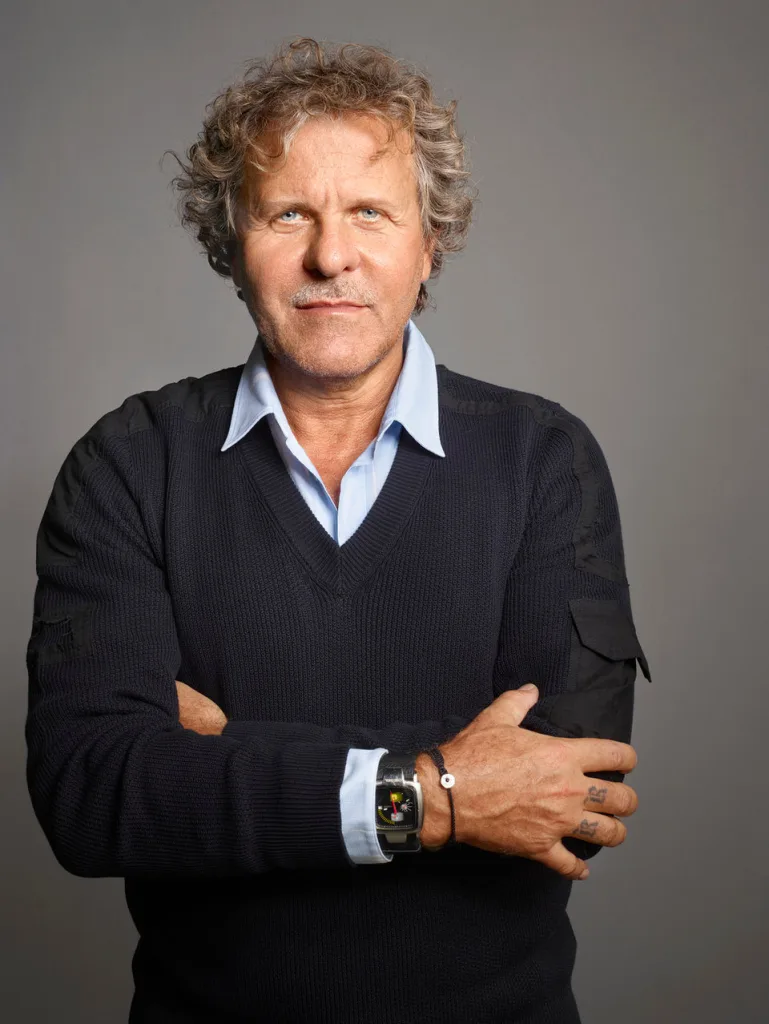Renzo Rosso, the owner of an extensive portfolio of leading fashion brands in Italy, has been exceptionally busy over the last two years, spearheading the revival of his flagship brand, Diesel, which had shown signs of stagnation. Meanwhile, his other brands, including Maison Margiela, Marni, Viktor & Rolf, and DSquared2, all housed under the holding company Only The Brave (OTB), have either thrived or are on the cusp of profitability.
During New York Fashion Week, Renzo unveiled Diesel Red Tag’s latest collection, a vital component of his strategy to rejuvenate Diesel. This time, the collection was a collaboration with A-Cold-Wall, following successful partnerships with Shayne Oliver, Glenn Martens, and Gosha Rubchinskiy. These collaborations were carefully curated to bridge Diesel with a millennial audience.
While in New York, we had the opportunity to catch up with Renzo Rosso and delve into the progress of his ambitious Diesel transformation. We also gained insights into the current status of his diverse fashion empire.
Diesel, celebrating its 41st anniversary this year, embarked on a revitalization journey two years ago. Despite its past success and profitability, Renzo recognized the need for a fresh perspective.
«Thanks to Diesel, I was able to acquire more brands. However, this also meant I spent more time overseeing these new companies and less on Diesel. My mistake,» he admits. «So, two years ago, I made a strong comeback. Diesel had been managed by others for too long. Yes, we met our numbers, but we did so by catering to everyone. The product became more simplistic and less reflective of the beautiful Diesel it once was,» he notes.
Renzo Rosso’s vision for Diesel has always mirrored his modern, detail-oriented approach. Diesel placed great emphasis on quality craftsmanship, double-point stitching, and unique treatments, with a strong focus on vintage finishes that defined the brand’s DNA.
«It’s like a house; a new villa lacks energy, but an old one exudes it,» he reflects.
To reinvigorate Diesel, Renzo started by enhancing creativity, beginning with the appointment of Nicola Formichetti as the creative director. However, he acknowledges that Nicola, while a fantastic stylist, was not the right fit for the role of creative director.
Initially, this newfound focus on youth-oriented products faced resistance from some of Diesel’s older customers. Renzo responded decisively by streamlining distribution channels and reducing discounting to reposition the brand. The result was a cut of 320 million euros in turnover.
Diesel also closed multiple flagship stores, and under the leadership of Renzo’s son Stefano as CEO in the USA, the brand exited major accounts like Macy’s and Nordstrom while strengthening its presence in upscale retailers like Saks, Hudson’s Bay, Neiman Marcus, and Bloomingdale’s.
In total, Diesel reduced its USA business from around $160 million to $100 million, but it’s on track to return to profitability this year. Renzo acknowledges that cutting costs initially incurs expenses but believes it was necessary to reposition the brand.
Renzo has been adjusting pricing, lowering entry-level prices while raising prices in higher categories. Diesel’s Red Tag line is primarily about branding rather than business, with capsule collections like Glenn Martens’ achieving a turnover of less than $500,000. However, they have succeeded in placing Diesel in prestigious stores worldwide.
Diesel’s transformation strategy is paying off, with celebrities once again wearing the brand and generating buzz on social media. This approach has broadened Diesel’s appeal from its previous target audience of 40 and over to a broader, more diverse market.
Rosso, who has always had a strong connection to the United States, appreciates the role of social media in the fashion landscape today. He recognizes the importance of engaging with younger generations and has redirected Diesel’s focus toward a State of Mind rather than age groups. Renzo’s first visit to America in 1978 marked the launch of Diesel, and he continues to have a deep appreciation for the country’s culture.
As for the future, Renzo Rosso believes that luxury will thrive, particularly in regions like China and India, where more consumers are emerging. He acknowledges the challenge of creating desire in a world where instant gratification is common. Diesel’s Red Tag capsule collection is designed for pre-orders, aligning with this need for anticipation.
Regarding fashion’s ecological impact, Renzo emphasizes the industry’s visibility and its potential to drive sustainability. The new generation is pushing for responsible practices, and Diesel is actively working to reduce its environmental footprint, from reducing water use to adopting natural dyes and recycling water.
Renzo Rosso’s diverse fashion empire includes brands like Maison Margiela, Marni, Viktor & Rolf, DSquared2, and Diesel. Each brand has a unique focus and is managed with a commitment to quality and innovation. Despite the challenges, OTB’s brands, apart from Diesel, account for 40% of the group’s annual revenues of 1.5 billion euros, showcasing remarkable success in Italy’s challenging economic environment.
In conclusion, Renzo Rosso believes in the continued success of luxury fashion, provided brands can create and sustain desire in a world where everything is readily available. Sustainability and responsible practices are becoming increasingly important, and fashion has a role to play in driving positive change.
